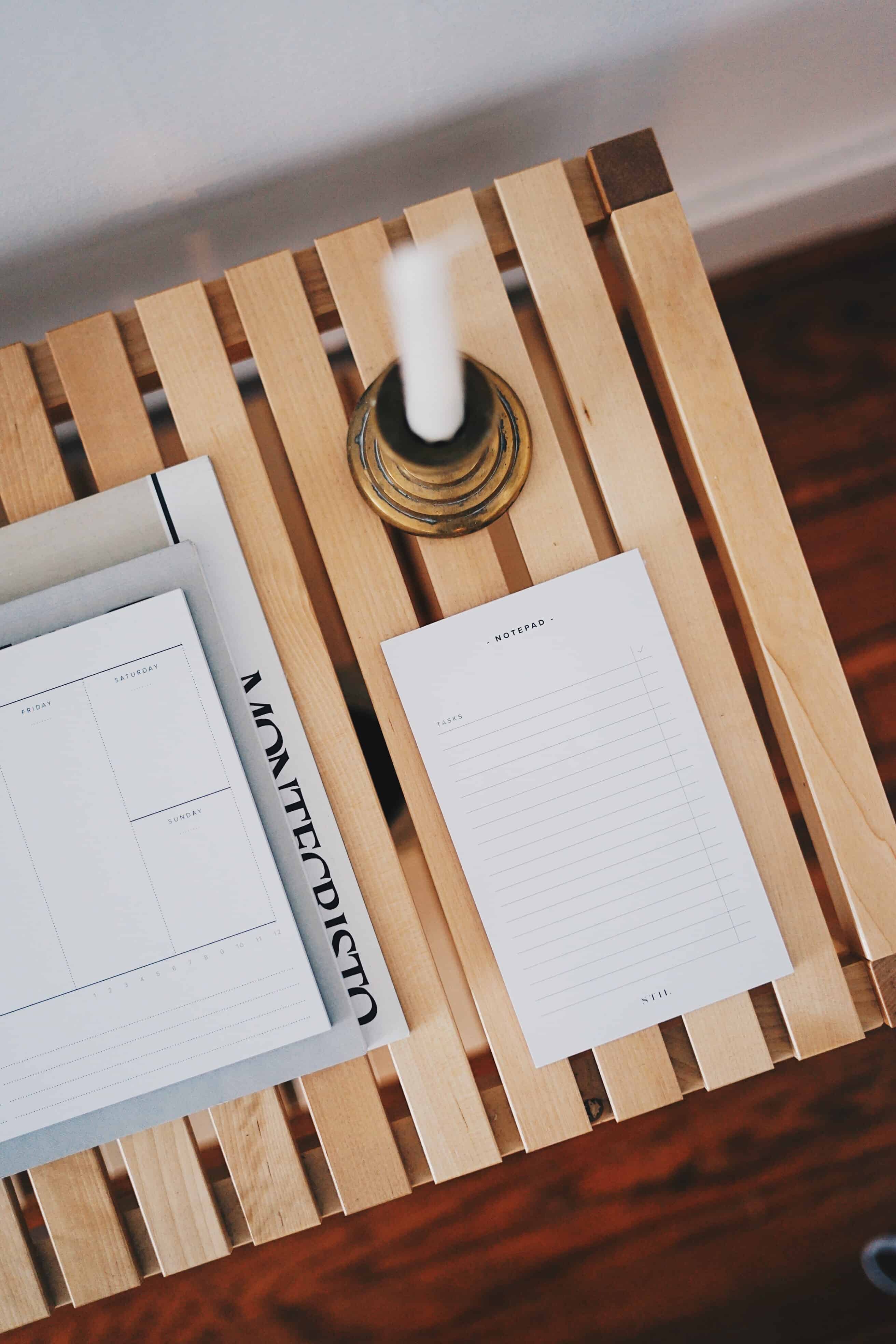12 Habits Of People Who Are Always Productive

Being productive comes with so many benefits.
It furnishes you with that pleasant feeling of accomplishment. It frees up your time, so you have more hours to spend on leisure and on relaxation. It relieves stress and helps you stay fresh and energized so you can accomplish even more.
Well, we know all of that, right? And yet, the proverbial million-wad question is, how to be productive? How not to procrastinate? And so on…
Well, if you ask us, we would say that the first thing you want to practice is to be kind and reasonable towards yourself. Do be introspective and try to find whatever it is that you are doing wrong, but never get rough on yourself since that will only result in releasing negative energy and drive yourself even further away from achieving your goals.
And once you’ve practised that one thing, then we would suggest that you try to implement the following tips and strategies and see if they can help improve your productivity.
So, here goes our list of 12 most productive habits that have helped numerous ‘highly productive people’ to be what they are, i.e., productive, efficient and successful!
1. They Make a Reasonable To-Do List
Normally, productive people are in the habit of preparing a To-Do list for everyday of their lives. However, when you prepare such a list, the important thing is that you make the list reasonable. Don’t make unreasonable demands on yourself. In the list, include stuff that you believe you can handle in the space of a single day. Unless you do this, the result will be that you will feel stressed every time you check or think about the tasks on the list. And this will inevitably make it even more difficult for you to finish the tasks.
Another upshot of creating a not-too-reasonable to-do list is that you will then tend to finish the easier tasks first, whereas the relatively more daunting ones will remain undone. And of course, you don’t want that.
2. They Prioritize Tasks

To follow up on what I was saying, we never want the important tasks, no matter how difficult, left undone. Here’s again where a to-do list will come to your aid. But, now instead of an everyday list, make one for a longer period of time, say, a week or a month. So, once you’ve set down the tasks you need to complete within that time period, go over the list again and decide which of those tasks you must absolutely finish within that time frame. In other words, prioritize your tasks. The priorities need not always be the most difficult ones (although most of them usually are!), but difficult or not, you know that those are the tasks that cannot afford no procrastination on your part!
3. They Group Similar Tasks Together
This is another common habit with highly productive and efficient individuals. Switching between tasks of different nature and kind always result in less productivity. When you make these switches, your brain functions in a start-and-stop motion and if these switches occur too frequently, the resulting frictions will automatically bring down efficiency and negatively affect productivity.
So, for example, make a point to not respond to a mail every one hour or half an hour while you are basically working on something else. This will slow down that primary work of yours. Instead, appoint a preset hour for the day when you’ll be responding to all your emails at one go and then move on—to the next group of similar tasks, and so on.
4. They Set Small Goals For The Tasks

Often when a new assignment or project comes up, the task may seem too large from the outset and this can sometime have the effect of overwhelming us to a certain degree. To prevent this from happening, see if you can break down the task into its different and smaller parts or components. If you can do this, then the task would appear to be much less daunting and you can then take a step-by-step approach to complete the work without much difficulty.
5. They Focus On One Goal at a Time
This is related to the aforementioned habit of prioritizing your tasks. However, a goal is something that comes with a broader meaning than do tasks. Say, you have three important projects at hand and by projects, we don’t merely mean assignments, etc., we mean ‘goals’—i.e., stuff that will play a crucial role in determining the future course of your life, be it furthering your career or something else.
READ: 10 Goals Every Girl Boss Should Set For Herself
So, when we are talking about tasks of this magnitude, it is wiser to go about them one at a time. This will make sure that, for the time being, you’re channeling all your energy and attention toward achieving that one single goal. And when you do this, your chances of success will be all the more higher than if you had divided your attention towards accomplishing multiple goals at one time.
6. They Take Breaks

Taking deliberate, structured and scheduled breaks from work is just as important as work itself. Since, let’s face it, we all are human after all and nobody can go on working at something with unflagging attention for 8-10 hours at a stretch. In fact, forget eight hours, it is commendable enough if someone can work with uninterrupted attention for 4-5 hours at one go.
This is why it is necessary to take scheduled breaks, say, every 2-3 hours. Even a short break of 10-15 minutes can work wonders in revitalizing you. Grab your bag and grab a bite to eat or go on a coffee run.
However, please note, that I said ‘scheduled’ breaks which means that the breaks ought not to be random or un-structured. Otherwise, they simply translate into distractions and rather than revitalizing you, it will only end up wasting your time and energy.
READ: 9 Things To Do Before 9AM For Morning Routine Success
7. They Know When to Unplug

Again, this is very much related to the preceding habit of taking breaks but this also means taking yourself off social media sites like Instagram, Twitter etc for a few hours or days. People who are disciplined and productive in their work know when to unplug. Unnecessarily straining yourself or constant distractions do no good to you or your work. Once you feel that your energy level has reached the saturation point, simply unplug, take a break, relax for a while for better focus, stress recovery and sleep.
8. They Find The Time To Be Active
This can come in many different forms—a regular morning meditation or yoga hour, an everyday morning walk, some light (or heavy, if you will) gym sessions few times a week, … and so on. No matter what you do, some regular form of exercise will help keep your mind and body fresh and will do a world of good to your productivity and to your overall well-being in general.
9. They Sleep Regularly
Similarly, make sure to maintain and follow regular sleeping hours. Don’t work all night one day and sleep for 12 hours the next! This may be okay at emergency scenarios, but never make it a habit. Again, a sound sleep can work wonders to help increase productivity and efficiency.
10. They Throw Stuff Away & Declutter

A ‘cool’, modern and uncluttered office space is great, but this is not entirely in your hand. However, what you can do is to keep your own personalized workspace, both at office and at home, relatively clean, organized and clutter-free. This is important for gaining clarity of mind plus, of course, you don’t want to spend a good 2-5 minutes scavenging your cluttered desk to find each single item that you’ll need during the course of your work!
If you need help with decluttering your home, download my free 30-Day Declutter Challenge!
11. They Stop Multi-tasking
At today’s office scenario, you cannot avoid this altogether. But all the same, do stop multi-tasking as much as possible. Remember what we were saying about switching between different tasks and how that creates constant frictions in our brain? Well, generally speaking, that is what multi-tasking is all about. So, to repeat, avoid it!
12. They Ask For Help On Things They Don’t Understand
None of us can grow all on our own. We all need to believe and depend on people around us. It is one thing to be self-reliant and another to avoid approaching people and asking their help for reasons of pride, timidity, or whatever… So, the bottom line—never shy away from asking help from better-informed people when you feel stuck or when facing difficulties understanding something adequately enough.
How do you stay productive? Share your thoughts by commenting below!
